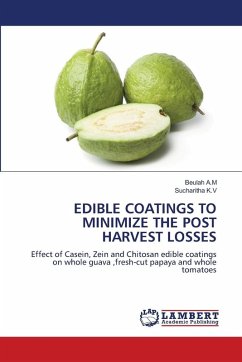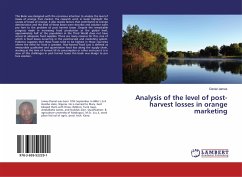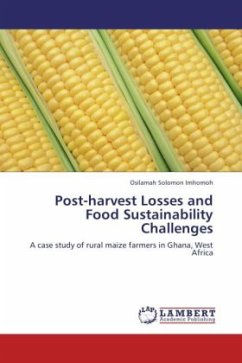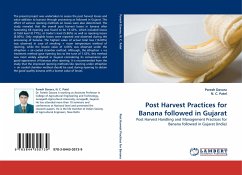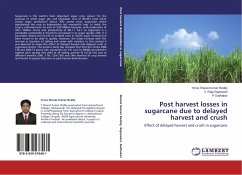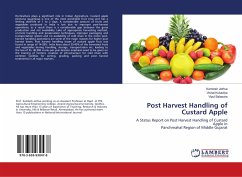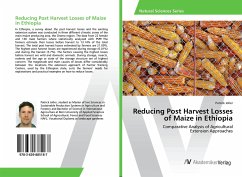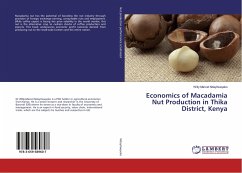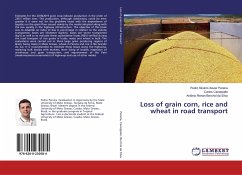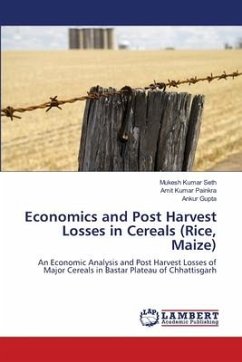
Economics and Post Harvest Losses in Cereals (Rice, Maize)
An Economic Analysis and Post Harvest Losses of Major Cereals in Bastar Plateau of Chhattisgarh
Versandkostenfrei!
Versandfertig in 6-10 Tagen
40,99 €
inkl. MwSt.

PAYBACK Punkte
20 °P sammeln!
The present study was conducted in Lohandiguda and Tokapal block in Bastar district of Chhattisgarh state. Ten villages from each block and ten cereals growing farmer from each village were interviewed for the study. The primary data were collected from the major cereal producers through personal interview by survey method with the help of well prepare schedule and questionnaire for the production and marketing year 2014-15. The growth rate of area, production and productivity of Chhattisgarh, Bastar plateau and Bastar district is worked out by using exponential analysis. Findings emerged from...
The present study was conducted in Lohandiguda and Tokapal block in Bastar district of Chhattisgarh state. Ten villages from each block and ten cereals growing farmer from each village were interviewed for the study. The primary data were collected from the major cereal producers through personal interview by survey method with the help of well prepare schedule and questionnaire for the production and marketing year 2014-15. The growth rate of area, production and productivity of Chhattisgarh, Bastar plateau and Bastar district is worked out by using exponential analysis. Findings emerged from present study revealed that the cropping intensity was observed to be of 124 percent. In Bastar district area, production and productivity of paddy showing negative growth rate, Bastar plateau zone also shows significant negative growth. The average cost of cultivation of paddy was 30654.8 Rs/ha and for maize is 25792.77 Rs/ha. The value of net income per hectare came to 11885.1 Rs/ha. in paddy and 16742.03 Rs/ha. in maize. Gross income of the farms by main product and by product together was 42539.9 Rs/ha. in paddy and 42534.8 Rs/ha. in maize.




